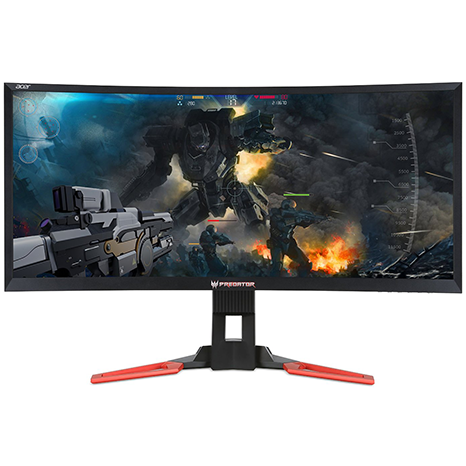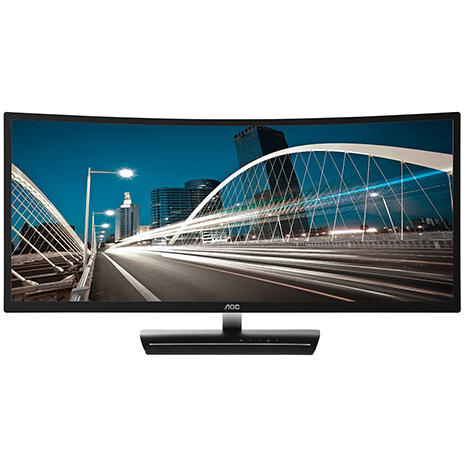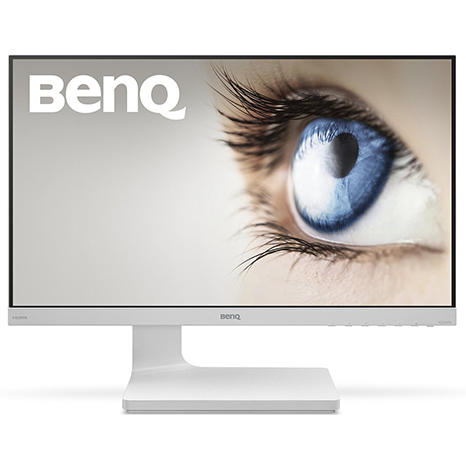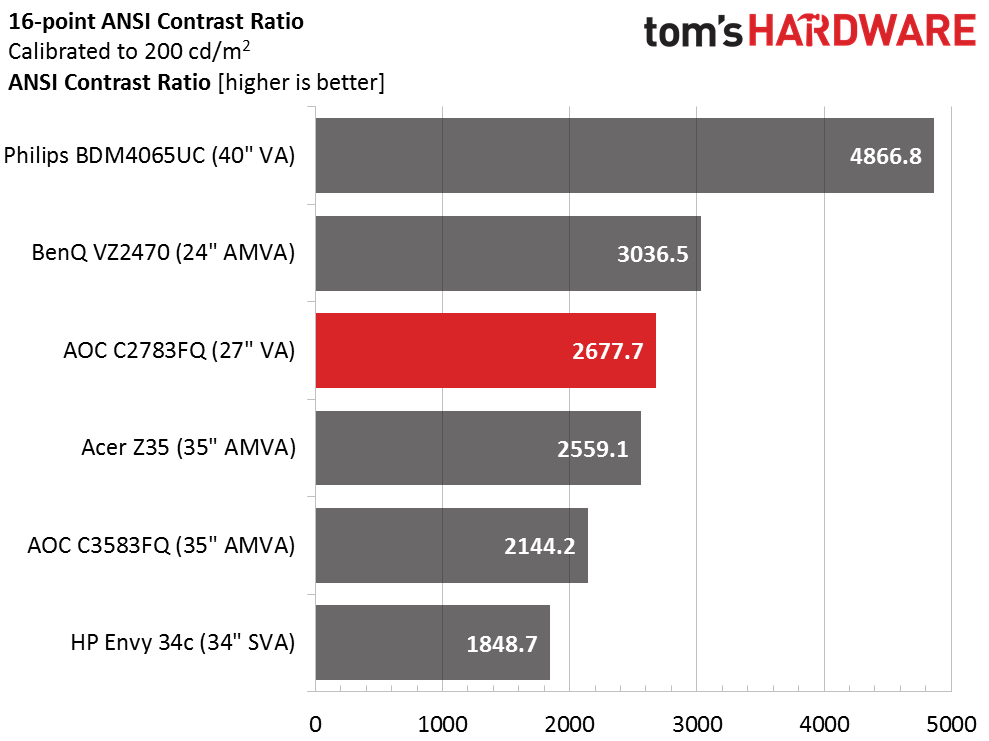AOC C2783FQ 27-inch Curved VA Monitor Review
Why you can trust Tom's Hardware
Brightness & Contrast
To read about our monitor tests in depth, please check out Display Testing Explained: How We Test Monitors and TVs. Brightness and Contrast testing is covered on page two.
Uncalibrated – Maximum Backlight Level
The C2783FQ is somewhat different from the monitors in our database, so we decided to include only VA panels in today’s group. Two of them, AOC’s C3583FQ and Acer’s Z35, are fast-refresh gaming screens, but the rest are firmly in the general use category. Rounding out the chart are the HP Envy 34c, Philips BDM4065UC, and BenQ VZ2470. Contrast and black levels are the theme here. All the monitors are capable of at least double the contrast of their IPS or TN counterparts.
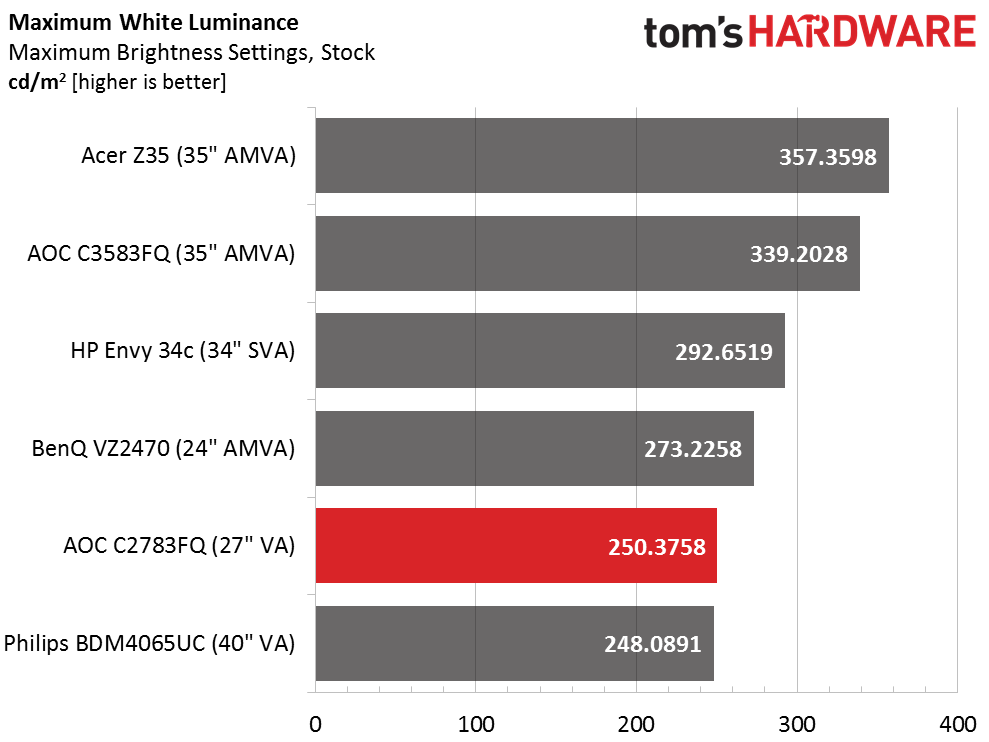
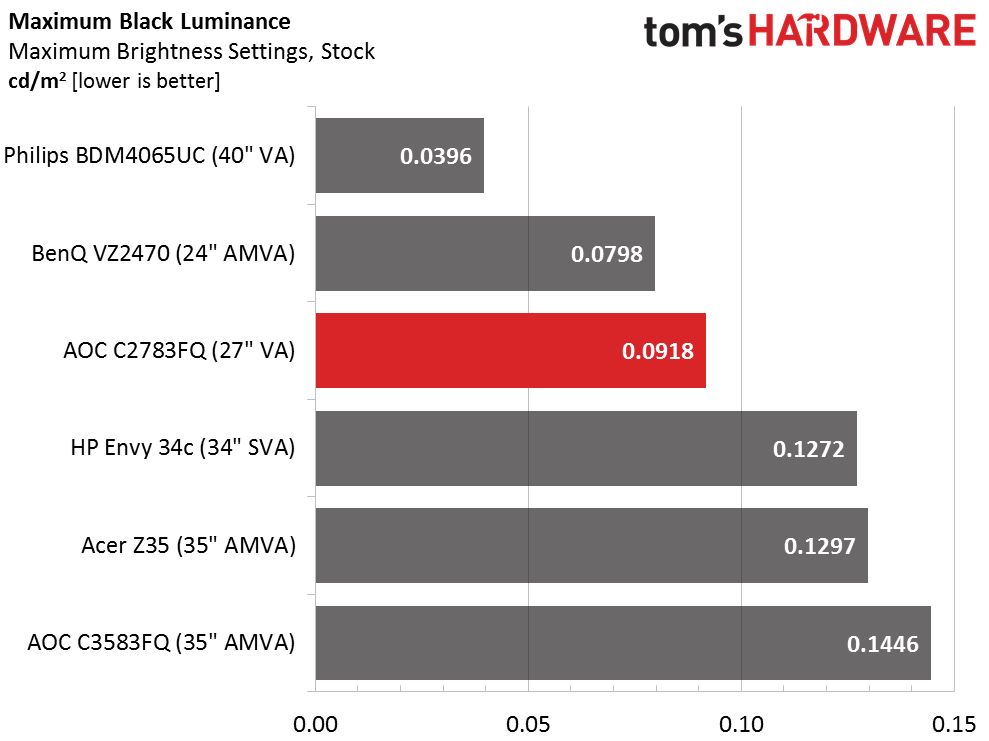
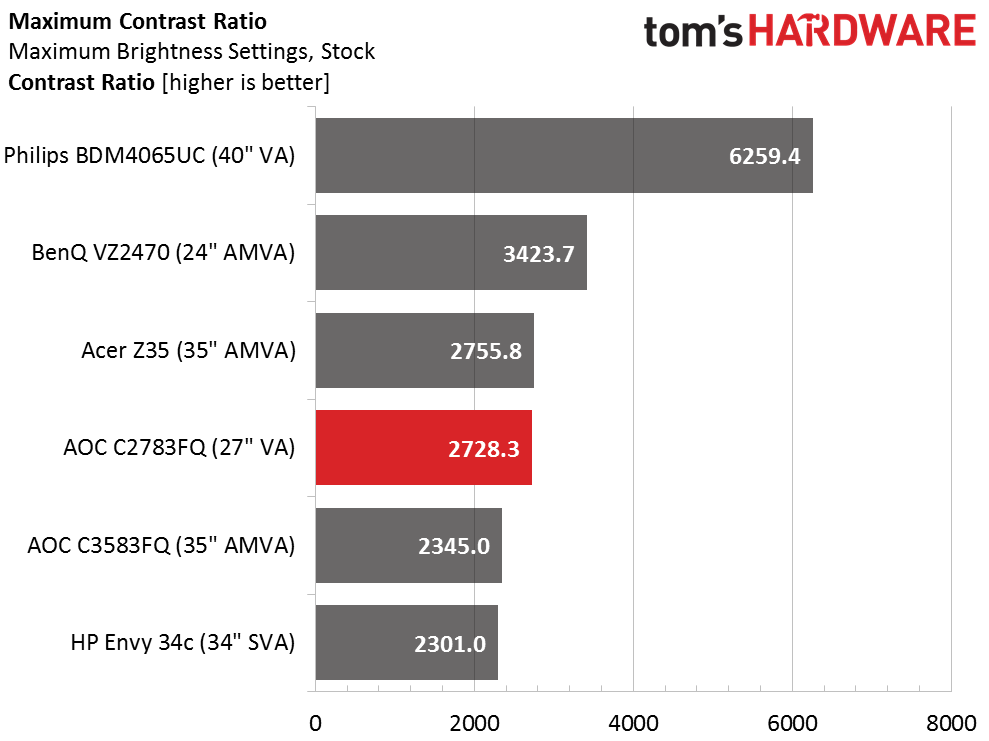
The C2783FQ isn’t the brightest monitor out there, but its measured max white level of 250.3758cd/m2 is more than adequate for office use. The two gaming screens offer output north of 300cd/m2, but the rest aren’t much brighter than our review subject.
Of course the top story is black level, and all of these monitors render rich, deep blacks, very similar to what you’d see from a quality HDTV. Even the last-place C3583FQ is far darker than any IPS screen we’ve measured.
Resulting contrast approaches 3000:1 and puts the C2783FQ mid-pack. It’s unlikely we’ll see anything but an OLED break the Philips record of over 6000:1 max contrast.
Uncalibrated – Minimum Backlight Level
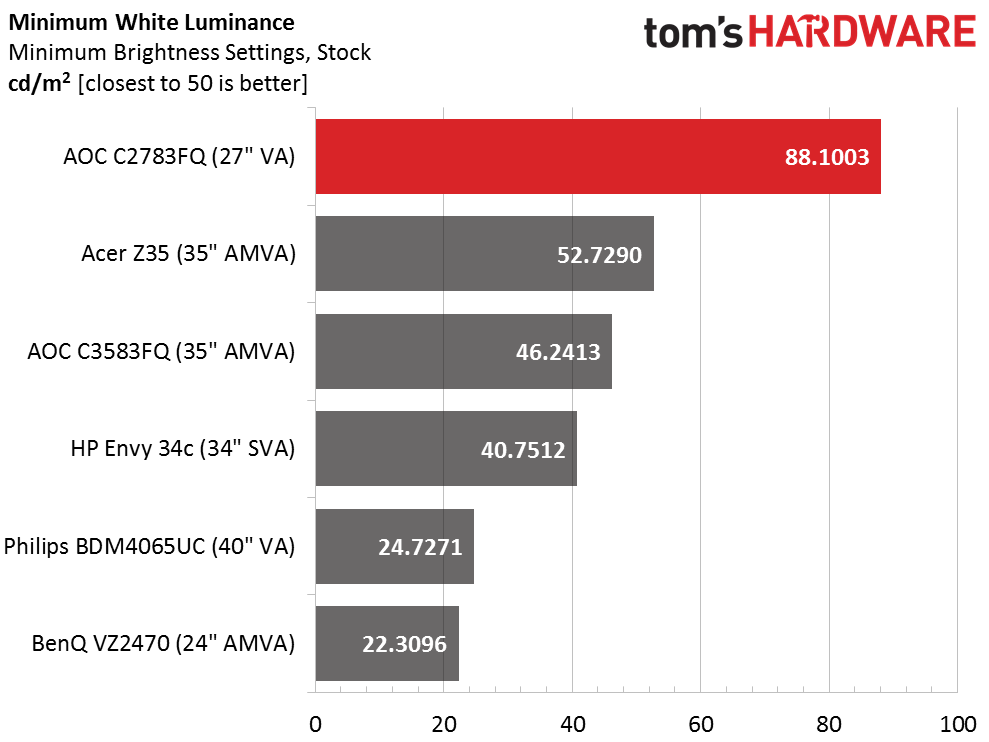
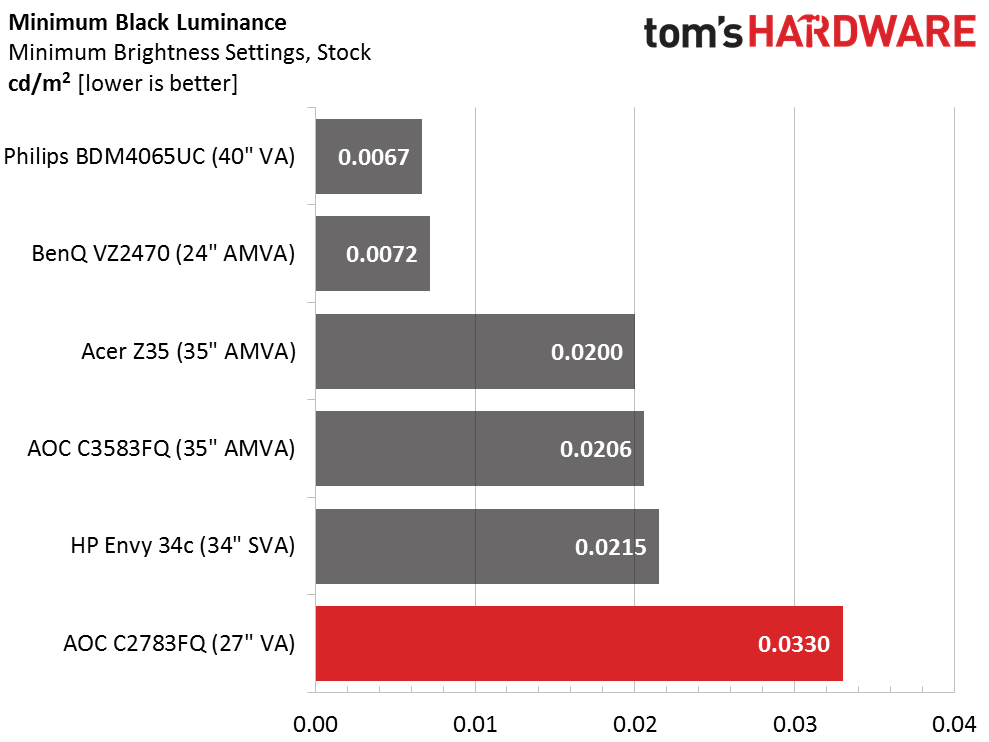
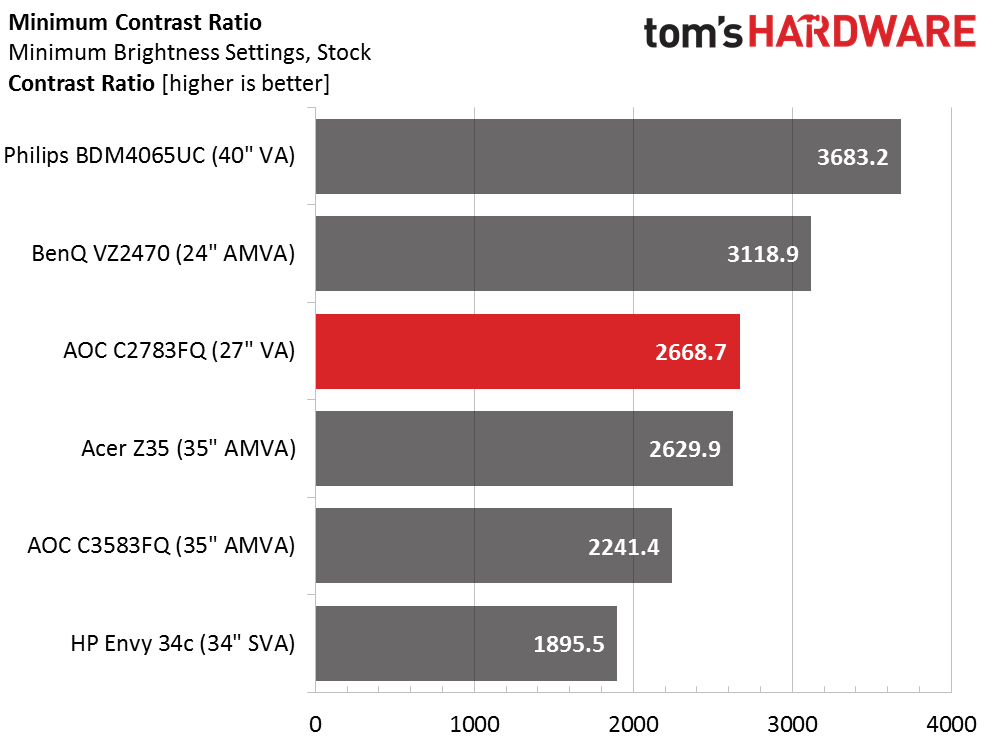
88.1003cd/m2 is a little bright for dark room use. We’d prefer something closer to 50cd/m2. But if you have a dim light on in the background, eye fatigue can be reduced significantly. That brighter backlight means a last place finish in the black level test, but the C2783FQ remains mid-pack in the sequential contrast comparison. As we'd expect from a modern display, contrast stays consistent throughout the backlight’s range.
After Calibration to 200cd/m2
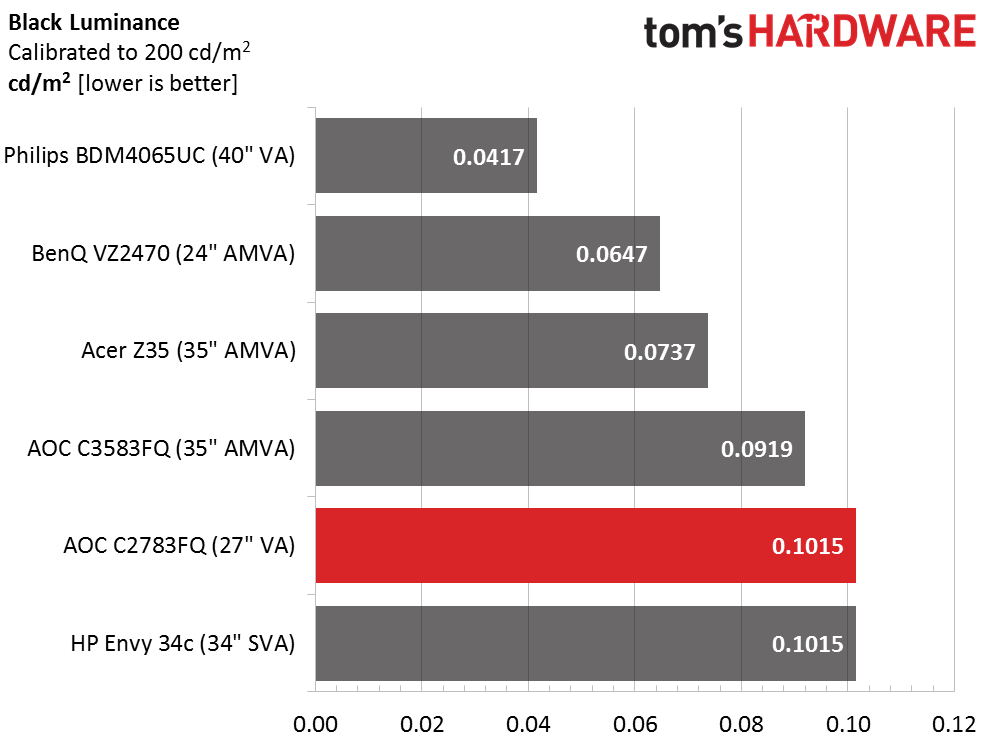
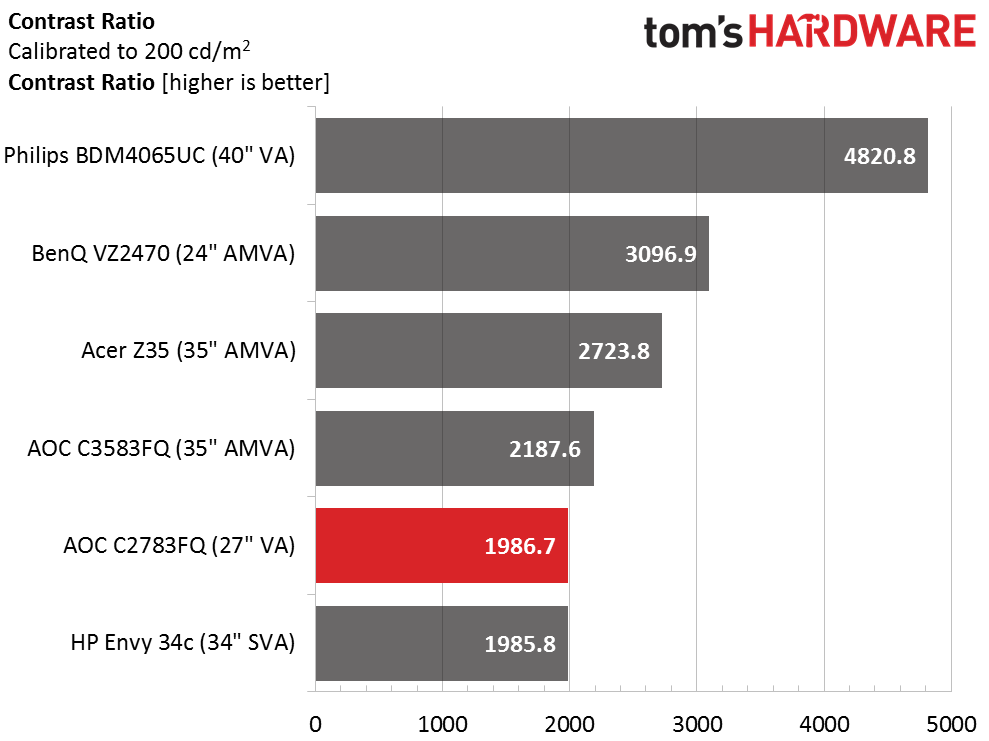
Calibration seems to raise the black level ever so slightly. It’s not a difference you can see, but it is measurable. That drops the sequential contrast down to just below 2000:1. Part of the reduction comes from lowering the contrast slider to fix a slight clipping issue in the 100% brightness step. The extra color accuracy is worth a small loss in performance. Fortunately we didn’t have to lament the sacrifice for long. Check out the ANSI result below.
Get Tom's Hardware's best news and in-depth reviews, straight to your inbox.
ANSI Contrast Ratio
Rarely does any monitor’s ANSI result exceed its sequential one. The uniformity of our C2783FQ is top shelf, as is the grid polarizer, which allows no light bleed between the white and black squares of our checkerboard pattern. Those black squares actually measure a tad darker than the full-field pattern, which almost never happens. This means actual content will have deep convincing blacks loaded with detail and bright, crisp white highlights. It truly is one of the best pictures we’ve seen to date.
Current page: Brightness & Contrast
Prev Page OSD Setup & Calibration Next Page Grayscale, Gamma & Color
Christian Eberle is a Contributing Editor for Tom's Hardware US. He's a veteran reviewer of A/V equipment, specializing in monitors. Christian began his obsession with tech when he built his first PC in 1991, a 286 running DOS 3.0 at a blazing 12MHz. In 2006, he undertook training from the Imaging Science Foundation in video calibration and testing and thus started a passion for precise imaging that persists to this day. He is also a professional musician with a degree from the New England Conservatory as a classical bassoonist which he used to good effect as a performer with the West Point Army Band from 1987 to 2013. He enjoys watching movies and listening to high-end audio in his custom-built home theater and can be seen riding trails near his home on a race-ready ICE VTX recumbent trike. Christian enjoys the endless summer in Florida where he lives with his wife and Chihuahua and plays with orchestras around the state.
-
NinjaNerd56 I have a similar flat version of this screen, and love it. $209 on sale at Best Buy last year.Reply
I use it with work laptop and home game tower every day...it's been OFF about 2 minutes since I got it.
Good stuff, Maynard! -
Dantte I want a 34" 21:9 1440p curved AMVA with 120Hz+ and g-sync. Please, someone make this displayReply
UPDATE: I looked into this and apparently AUO (they build the panels for Acer) is working on this exactly panel, @200Hz, and should be available in 2017. FreeSync and G-Sync are unknown at this time. They are also working on a 4K 144Hz panel that should come out around the same time in 2017. -
sillynilly Great price for an ok monitor. Could never go backwards to a large format 1080 panel, but for many people, this could be a decent option. I'm with Dantte - that's the monitor I'm looking for.Reply -
jaber2 Not sure if I want the wires not hanging from the monitor, this design makes my head hurtReply -
TheDane Low rez.... boring! Please - more 3440x1440 and 4K gaming monitor tests. Since I tried gaming on a 3440x1440 (21:9) I simply cannot go back to anything less than 2560x1440.Reply -
nitrium I'd go for something like this instantly if it was 2560x1600 (16:10) 144Hz IPS with FreeSync.Reply -
Eggz CORRECTION:Reply
The opening paragraph says that 34' ultrawides are usually 3440 x 2160, but they are usually 3440 x 1440. The 2160 number is part of 4K, not ultrawide. -
harrkev Can somebody explain the "curved monitor" thing to me with anything besides "because we can?"Reply
Da Vinci pained the Mona Lisa on a completely flat surface. Van Gogh did not have a curved surface when he painted "The Starry Night." OK. I admit that the Michelangelo chose a curved surface when he painted the Sistine Chapel ceiling.
